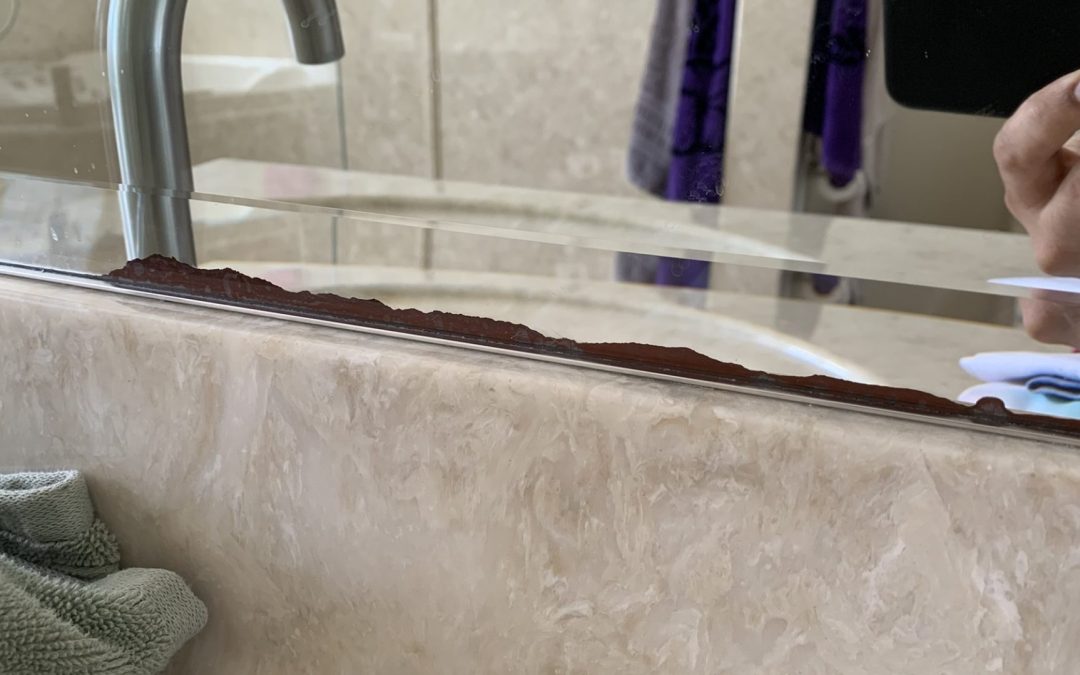Mirrors are essential household items. That use for various purposes, including personal grooming, decorating and enhancing the visual appeal of a room. While mirrors are typically made of glass, they also contain a reflective coat on the back. Such as silver or aluminum, which enhances the quality of the reflected image. This reflective coating is essential for the mirror to function properly. Any damage to it can result in the mirror becoming less reflective or entirely non-reflective.
One of the problems that can occur with mirrors is the corrosion or rusting of the reflective coating. While rusting is typically associated with metal materials. The reflective coating on some mirrors can corrode or rust over time, causing the mirror to lose its reflective properties. Mirror rusting is a relatively common issue, and it can occur due to various factors, including exposure to moisture, humidity, and environmental pollutants.
The reflective coat on a mirror is typically made of a thin layer of metal. Such as aluminum or silver. that is applied to the back of the glass. The metal usually protects by a layer of paint or lacquer to prevent it from corroding or oxidizing. However, over time, the protective coating can break down, exposing the metal to the environment, and causing it to rust. Rust is a form of corrosion. That occurs when oxygen in the air reacts with the metal, causing it to break down and form a layer of iron oxide.
Moisture is one of the main causes of mirror rusting. When the protective layer on the mirror breaks down, moisture can penetrate the reflective coating and come into contact with the metal. The moisture can then react with the metal, causing it to rust. High humidity levels can also contribute to mirror rusting, as the moisture in the air can condense on the surface of the mirror and penetrate the reflective coating.
Environmental pollutants can also cause mirror rusting. Air pollution, such as smog and acid rain, can cause the protective layer on the mirror to break down more quickly, exposing the metal to the environment. Chemical cleaners that contain harsh chemicals can also damage the protective coating, causing the metal to rust. It is important to use gentle cleaning products when cleaning mirrors to avoid damaging the reflective coating.
Mirror rusting can have several consequences. The most obvious consequence is that the mirror will lose its reflective properties, making it difficult to use for personal grooming and other purposes. Rust can also cause discoloration and other aesthetic issues, making the mirrorless visually appealing. In severe cases, the rust can cause the reflective coating to flake off, further damaging the mirror.
Preventing mirror rusting requires taking certain precautions. For example, it is important to avoid exposing the mirror to moisture and humidity, especially in areas with high humidity levels, such as bathrooms and kitchens. Regular cleaning and maintenance can also help prevent mirror rusting. It is essential to use gentle cleaning products that do not contain harsh chemicals that can damage the reflective coating. When cleaning the mirror, it is also essential to avoid spraying the cleaner directly onto the surface of the mirror, as this can cause the cleaner to seep into the edges of the reflective coating and damage it.
In some cases, it may be possible to repair a rusted mirror. However, repairing a rusted mirror requires specialized knowledge and equipment, and it is usually more cost-effective to replace the mirror entirely. If the mirror is a valuable antique or has sentimental value. It may be worth consider have it professionally restored.
In conclusion, mirror rusting is a common issue that can occur due to various factors, including exposure to moisture, humidity, and environmental pollutants. Rust can cause the mirror to lose its reflective properties, become discolored, and develop other aesthetic issues. Preventing mirror rusting requires taking certain precautions, such as avoiding exposure to moisture

